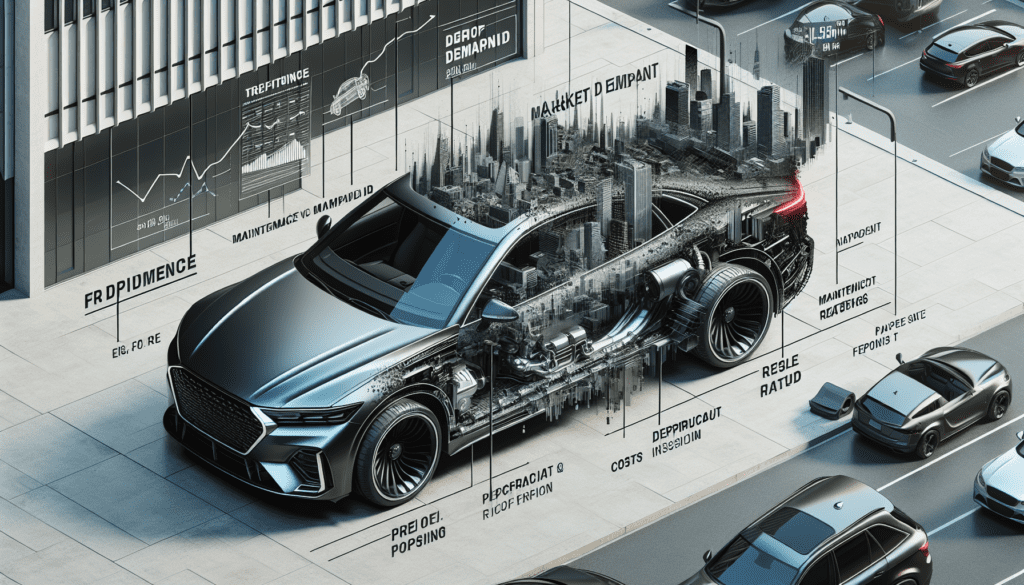When it comes to flipping cars, selecting the right ones to invest in can make all the difference. With numerous factors to consider, making an informed decision is crucial for success in this profitable venture. From determining market demand to assessing repair costs and potential profit margins, there are key considerations that can help you navigate the world of flipping cars. So, before you embark on your next automobile flipping adventure, let’s explore some of these essential factors to ensure you make the right choices and secure a rewarding return on your investment.

Price
Budget
When selecting cars to flip, one of the most important factors to consider is the price. Your budget plays a crucial role in determining the types of cars you can afford to purchase. It is essential to set a realistic budget and stick to it, ensuring that you do not overspend and risk not making a profit on your flip. Consider your financial resources and determine how much you are willing to invest in the initial purchase of the vehicle.
Resale Value
Another vital aspect to consider is the potential resale value of the car. Look for vehicles that have a strong demand in the market and are likely to sell quickly and at a reasonable price. It is advisable to research resale values for different car models and consider factors such as the popularity of the brand, model, and specific features. Keep in mind that certain luxury or sports cars might have a higher resale value compared to more common models.
Condition
Mechanical Condition
When selecting cars to flip, it is crucial to carefully evaluate the mechanical condition of the vehicle. A car with significant mechanical issues can quickly turn into a money pit, eating away at your potential profits. Consider getting a pre-purchase inspection from a trusted mechanic to identify any underlying problems before making a purchase. Pay close attention to the engine condition, transmission, brakes, suspension, and other essential components.
Cosmetic Condition
In addition to the mechanical condition, the cosmetic appearance of the car is another crucial factor to consider. A vehicle with a well-maintained exterior and clean interior is more likely to attract potential buyers and sell at a higher price. Assess the overall appearance of the car, including the paint, interior upholstery, and any visible damages or imperfections. Keep in mind that while cosmetic issues can often be fixed, extensive repairs or repainting may eat into your profits.
Market Demand
Popular Models
Understanding market demand is vital when flipping cars. Research popular models and pay attention to trends in the automotive industry. Cars that are in high demand will sell faster and potentially at a higher price, increasing your chances of a successful flip. Consider factors such as fuel efficiency, reliability, and consumer preferences when determining which models are in high demand.
Trends
Staying up to date with current trends is essential for successful car flipping. Look for emerging trends in the automotive industry, such as the growing popularity of hybrid or electric vehicles. Additionally, consider trends in specific vehicle types, such as SUVs or compact cars. By anticipating market trends, you can select cars that are likely to be in high demand in the near future, maximizing your potential profits.
Mileage
Average Mileage
The mileage of a car is an essential factor to consider when selecting vehicles to flip. Generally, lower mileage is more desirable, as it suggests that the car has been less used and potentially better maintained. However, the average mileage will vary depending on the age and type of vehicle. It is crucial to research the average mileage for specific models and take into account the overall condition of the car. A well-maintained car with slightly higher mileage may still be a worthwhile investment if the price is right.
Maintenance History
Understanding the maintenance history of a car is crucial in determining its reliability. Request the maintenance records from the previous owner and evaluate the frequency and extent of regular maintenance. Consider any major repairs or replacements that have been done, as these can impact the overall condition and future performance of the vehicle. A well-documented maintenance history can instill confidence in potential buyers and increase the resale value of the car.

Repairs and Upgrades
Cost of Repairs
When selecting cars to flip, it is important to evaluate the potential cost of repairs. While minor repairs can be factored into the overall budget, extensive repairs can significantly impact your profitability. Consider the availability and cost of replacement parts for the specific make and model of the car. It is advisable to consult with a mechanic or automotive expert to help assess the potential repair costs accurately.
Potential for Upgrades
On the flip side, the potential for upgrades can also be a factor to consider. Some car models have a wide range of aftermarket parts and accessories available, allowing you to enhance and customize the vehicle. Upgrades such as alloy wheels, upgraded sound systems, or performance modifications can attract buyers who are willing to pay a premium for added features. However, it is essential to carefully analyze the cost and potential return on investment of any upgrades before proceeding.
Availability of Parts
OEM Parts
The availability of Original Equipment Manufacturer (OEM) parts is crucial when considering cars to flip. OEM parts are designed specifically for a particular vehicle model and are often preferred by buyers for their quality and compatibility. Research the availability and cost of OEM parts for the car you intend to flip to ensure that replacements can be easily sourced if needed. Cars with readily available OEM parts are generally easier to maintain and can attract a wider pool of potential buyers.
Aftermarket Parts
Alternatively, the availability of aftermarket parts can also be considered when selecting cars to flip. Aftermarket parts are produced by third-party manufacturers and can often be more cost-effective than OEM parts. Some car models have a vast array of aftermarket parts available, allowing for customization and potential cost savings on repairs. However, it is important to be cautious with aftermarket parts, as their quality may vary, and some buyers may prefer OEM parts for their perceived reliability and authenticity.
Ownership History
Number of Previous Owners
The number of previous owners can provide valuable insights into the condition and history of a car. Generally, a car with fewer previous owners is preferable, as it suggests that the vehicle has been in the hands of fewer individuals and potentially better cared for. However, it is important to consider other factors such as the duration of ownership and the overall maintenance history. A well-maintained car with multiple owners may still be a worthwhile investment if the ownership changes were relatively short and the maintenance records are comprehensive.
Accident History
Understanding the accident history of a car is vital when selecting vehicles to flip. Request a vehicle history report to check if the car has been involved in any significant accidents or has a salvage title. Cars with a clean accident history generally have a higher resale value as they are considered to be more reliable and safe. Be wary of vehicles with a history of extensive damage, as repairs might not bring the car back to its original state and could impact its future performance and value.
Documentation
Title and Registration
Ensuring that the car has a clean title and proper registration is crucial when flipping cars. Verify that the title is in the seller’s name and free of any liens or encumbrances. Improperly titled or unregistered vehicles can cause legal complications and potentially delay or prevent the resale process. It is advisable to consult with a legal professional or do thorough research to ensure compliance with local regulations regarding title transfers and vehicle registration.
Service Records
Obtaining the service records of a car is highly beneficial when selecting vehicles to flip. Service records provide a comprehensive overview of the car’s maintenance and can give potential buyers confidence in its reliability. Request the complete service history from the previous owner, including records of regular maintenance, repairs, and any recalls or warranty work. Having detailed service records can increase the resale value of the car and make it more attractive to prospective buyers.
Insurance Costs
Premiums and Coverage
Consider the potential insurance costs when selecting cars to flip. Insurance premiums can vary significantly depending on the type of vehicle, its age, and your location. Research insurance rates for different car models, taking into account factors such as the vehicle’s safety features and crash test ratings. Additionally, consider the coverage you require and whether certain models may be more expensive to insure due to their desirability or higher repair costs.
Safety Ratings
Evaluating the safety ratings of a car is important for both insurance costs and buyer appeal. Check the safety ratings of the car model you are considering to determine its crashworthiness and safety features. Cars with favorable safety ratings are more likely to attract buyers and can potentially lower your insurance premiums. Consider features such as airbags, anti-lock brakes, stability control, and advanced driver assistance systems when assessing the safety of a vehicle.
Location and Storage
Transportation Costs
Consider the transportation costs when selecting cars to flip, especially if you plan on purchasing vehicles from out-of-town or online auctions. Factor in the cost of transporting the car to your location, including any delivery fees or hiring a professional transport service. Transportation costs can eat into your budget, so it is important to carefully evaluate these expenses when considering potential purchases.
Storage Facilities
Lastly, think about the storage facilities available to you when flipping cars. If you do not have access to a secure garage or storage space, you may need to consider the additional cost of renting or leasing a storage facility. Proper storage is crucial to protect the cars from damage, theft, and exposure to the elements. Consider the affordability and proximity of storage options to your location, ensuring that you can safely store the vehicles during the flipping process.
In conclusion, when selecting cars to flip, it is important to consider various factors that can impact your potential profitability. Assessing the price, condition, market demand, mileage, repairs and upgrades, availability of parts, ownership history, documentation, insurance costs, and location/storage can help you make informed decisions and increase your chances of a successful flip. Remember to conduct thorough research, consult with experts, and carefully evaluate each aspect to maximize your investment and make the most of your car flipping endeavors. Happy flipping!

